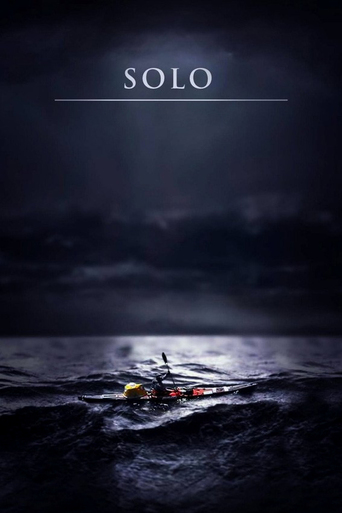NaCuFa
I loved this documentary. It is one of the most emotional and interesting documentaries I've ever seen.His final radio message is haunting and incredibly sad. The descriptions given as to what kind of conditions he faced on his attempt were interesting and moving, and helped give you an added respect for him, knowing that he survived such terrifying weather, only to be taken out by a set of rogue waves that came out of nowhere when he was in seeing- distance of his goal. The camera footage is also fascinating. The breakdowns he has, and him describing how bad it was when he had to bail out the canoe by hand were captivating.I really enjoyed this, and have watched it more than once since.
Boba_Fett1138
The one reason why this documentary works out is because of its fascinating and original subject. It however feels like its only being a retelling and a look back at events but it doesn't quite ever answers the why and hows.So the documentary opens with telling you that its main subject had died, during an attempt to cross the Tasman sea in nothing more but a small kayak. Was this a good and smart thing for the documentary? Well, it of course takes away most of the tension already but it opens plenty of other doors for the documentary to handle and for its interviewees to talk about, so it's not something that I'm holding against this documentary, though I can certainly imaging some people already being turned off by this.The one thing I was a bit bummed out about was the fact that the movie told you its main subject did not survived but the videotapes that filmed his journey did. However as it turns out by the end, the video tapes of the last couple of days were destroyed by the salty sea water, so we actually don't get to see what happened to Andrew McAuley and how come he suddenly drowned after traveling for 3 weeks straight and having survived a big storm already. New Zealand was literally in his sight but we now will never know what happened to him. So it in fact feels a bit pointless for the movie to show some of the earlier tapes but not show the climax, so to speak, in a not very respectful way but it just feels a bit like an anticlimax.So it doesn't gives you the why and how but it also doesn't ever explain the why's as to why McAuley wanted to attempt this journey in the first, while he had a young son and a loving wife and an earlier attempted already stranded after 1 day of peddling. It was an extremely dangerous journey and many people thought it was impossible for him to survive under these treacherous conditions. He himself also was very well aware of this and he himself doesn't even seem to know why he's doing it and is openly doubtful about the outcome. The documentary doesn't ever answer for him, or makes it clear as to why he would even consider attempting such a thing.However if you look at it as simply an adventurous quest of endurance, persistence and courage, the story still works out well and fascinating enough. It switches back and forth between the found footage of McAuley's endeavor and his family, friends and supporters at the time and afterward, looking back at all, long after they learned about his faith. It does definitely has its moments but I wouldn't exactly call or consider this documentary to be a particularly well made or good looking one. It all feels pretty formulaic and it just doesn't ever delves too deep into things, probably because it had too much respect for its main subject; McAuley and his journey.It definitely remains good and interesting enough to watch but it's nothing to run out for.7/10 http://bobafett1138.blogspot.com/
steev
Michôd and Peedom's hour-long documentary recounts the tale of Andrew McAuley, an Australian adventurer who, in 2006, launched a quest to become the first person to paddle a kayak across the treacherous Tasman Sea, one of the loneliest and toughest stretches of water in the world.Obviously, the story itself is both amazing and remarkably sad. The documentary begins by introducing McAuley - a heroic, adventurous and fatalistic figure who wouldn't be out of place in the films of Werner Herzog - as well as his wife and young son, friends and supporters.With shades of Kevin McDonald's 2003 feature documentary Touching the Void, this well crafted Australian documentary tells a remarkable and tragic story in a fascinating and engaging manner and Michôd and Peedom approach the documentary with a steady enough hand. They recount the story with a mixture of original footage and interviews, in manner perhaps befitting the sombre and serious tone of McAuley's story. Yet it's hard to feel that, given both the length of the piece and its over-reliance on talking heads, subtle fades and straight-forward storytelling, that it is anything more than a fairly run-of-the-mill TV doco in the realm of ABC-TV's popular and successful series 'Australian Story'. That said, the strength of the material and the measured approach from the directors, means that Solo has rightfully gained an audience around the world, featuring among film festival programmes from Adelaide to Sheffield to Toronto and appearing on prime-time television on BBC 2.

